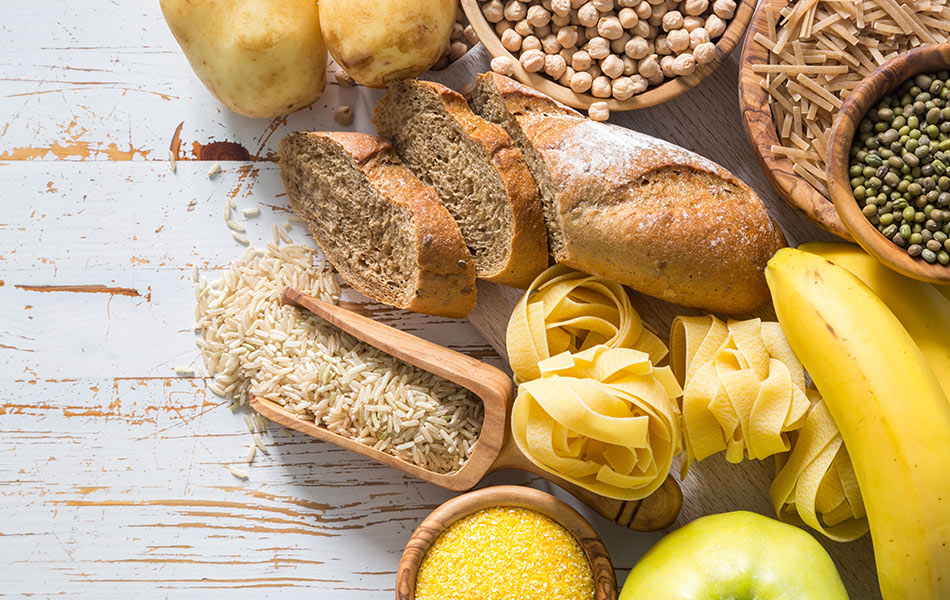8 Habits Sabotaging your Weight Loss Efforts

Hey Angels and Alphas,
We’ve said it time and time again – losing weight is a matter of expending more calories than you’re taking in. That being said, even though this sounds simple, weight loss is a process that becomes much more complex when brought down to the level of the individual.
We all have different lifestyles and habits, some of which help our weight loss efforts, and some of which actually work against it. That’s why today, we’re here to explore some of the lifestyle decisions and habits that negatively impact your weight loss efforts so you can make the necessary changes to your lifestyle and achieve your weight loss goals much more quickly. Let’s get started.
#1 – SKIPPING BREAKFAST.
There’s a growing body of research on whether or not breakfast is a must. That being said, many dietitians point to the fact that a lot of people who are stalled in their weight loss efforts happen to be people who skip breakfast.
If you don’t eat enough protein at breakfast, this likely means you’re missing out on a key opportunity to replace the protein you just broke down while you were sleeping. Skipping protein at breakfast will ultimately lead you to a sluggish metabolism.
What’s more, if you’re eating too light of a breakfast, for example some fruit or a pack of muffins, you likely won’t stay satiated until lunch. This will have a ripple effect on your day. On the other hand, if you eat a satisfactory breakfast, you’ll be less distracted by hunger, more focused, and way more energetic.
#2 – LACKING MAGNESIUM.
We’ve talked about the impact on sleep on your weight loss efforts countless times. Skipping on sleep one day makes you irritable and creates hunger cravings, so imagine what it does in the long-term. Your hormones get skewed, and you start reaching for sugary snacks more often throughout the day.
What you probably haven’t considered, though, is how much of an impact your magnesium levels play in your sleep. Most people don’t consume enough magnesium,
which interrupts their proper sleep quality. That’s why adding more magnesium-rich foods in your diet will, in multiple ways, ranging from optimal body functioning to quality sleep, aid your weight loss efforts.
#3 – NOT EATING ENOUGH.
Sure, the usual calories-in versus calories-out formula sounds simple, but you should know that your body has evolutionarily been designed to withstand long periods of lacking food. To compensate for this lack of food, your body will drive up hunger levels and put your body into conservation mode, preventing you from losing weight.
If you find yourself feeling tired all the time while you’re facing a weight loss plateau, this is likely because you’re not consuming enough calories to meet your needs. There’s a difference between consuming less calories than you need and undereating, and undereating will prevent you from losing weight in the long-term. Make sure you’re consuming enough calories to keep your body happy, but not enough so you’re going over your limits and giving it too much to handle.
#4 – FALLING FOR FAD DIETS.
There are always new “experts” and new fads coming out telling you what you should “really” be doing to lose weight. That being said, most of them come with long lists of restrictions and “don’t eat this”-foods.
Fad diets fail for countless reasons, but one of the biggest might be that they’re not sustainable. They don’t help you build a positive relationship with food. Fad diets are usually targeted toward everyone, claiming they can help anyone lose weight. They claim they’re quick fixes for weight loss, and present you with a list of good and bad foods.
Don’t fall for this. Focus on building a sustainable relationship with food that doesn’t limit your favorite foods yet helps you achieve the result you want. Coincidentally, this won’t happen quickly. It takes time to achieve true health and long-term results.
#5 – CUTTING OUT ENTIRE FOOD GROUPS.
Building upon our last point, we can’t not mention the fact that a lot of diets and food labels include the words “carb-free” or “low-fat.” Even though there’s a place for those in your life, they often fall under restriction.
Your body thrives on balance and requires that balance in order to function properly. When you’re taking an entire food group away, such as carbs or fats, you’re coming from a place of scarcity and deprivation, which never results in a positive outcome.
Deprivation not only negatively impacts your metabolism, but also results in binge- eating and food cravings in the long-term. Research published in the Journal of Obesity discovered that people who consistently binged lost only half the weight that non-binge dieters did. Instead of cutting out your food groups, make sure you’re focusing on the 80/20 method.

#6 – LETTING YOUR DIET MAKE YOU MISERABLE.
Even though we tend to boil down weight loss to a simple math problem, we can’t deny that your emotional well-being is another important factor in your overall health. If you’re depriving yourself of your favorite foods, you’re hungry all the time, and you’re reaching for snacks because of constant cravings, you’ll find it impossible to lose weight.
True health happens when you encourage your mental health and find a sustainable plan for weight loss. But how do you do this? One way is to surround yourself with positive connections. Relationships that are supportive (and that feel right) are the key to your success both in and outside the gym. Improving your emotional well-being is key when it comes to losing weight and getting healthy.
#7 – HAVING UNREALISTIC EXPECTATIONS.
Just because you choose a certain number for your weight loss, doesn’t mean achieving it will be that simple. Many factors come into play in this equation, such as
metabolism, age, stress, hormones, genetics, and more. All of these can play a role in getting you past that number on the scale.
But while this does sound a bit daunting, it’s actually a very freeing feeling. A realistic goal is achievable and makes you feel good and motivated, while unrealistic goals can only put you in a downward spiral of feeling bad about yourself.
#8 – NOT TRACKING NUMBERS.
Making sure you’re reaching a slight caloric deficit is undoubtedly vital to losing weight. But this means that you’ll likely need to be tracking these numbers in order to achieve the metrics you want. To find what your perfect calorie number is, you should track your
food, at least in the beginning.
It can be easy to forget what you ate and when you ate it, and this makes it harder to discover what’s stopping you from reaching your goal. That’s why you should grab a journal, grab a pen, and write down everything you eat along with its caloric contents.





